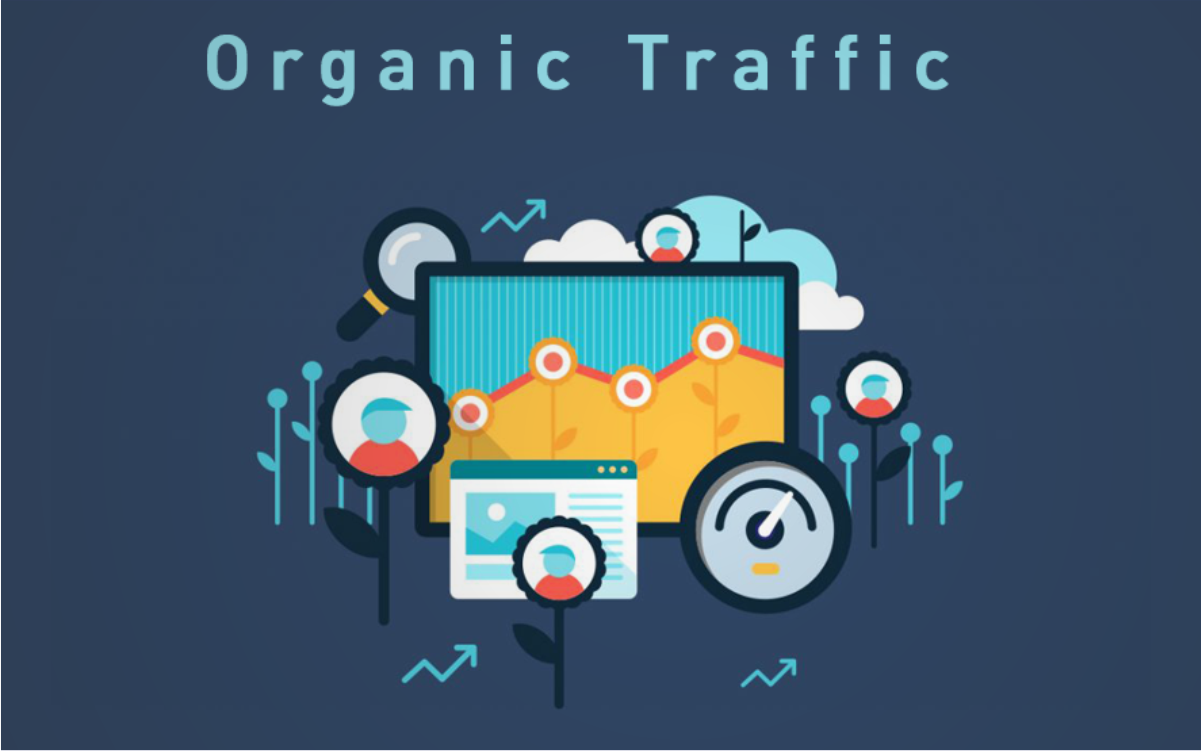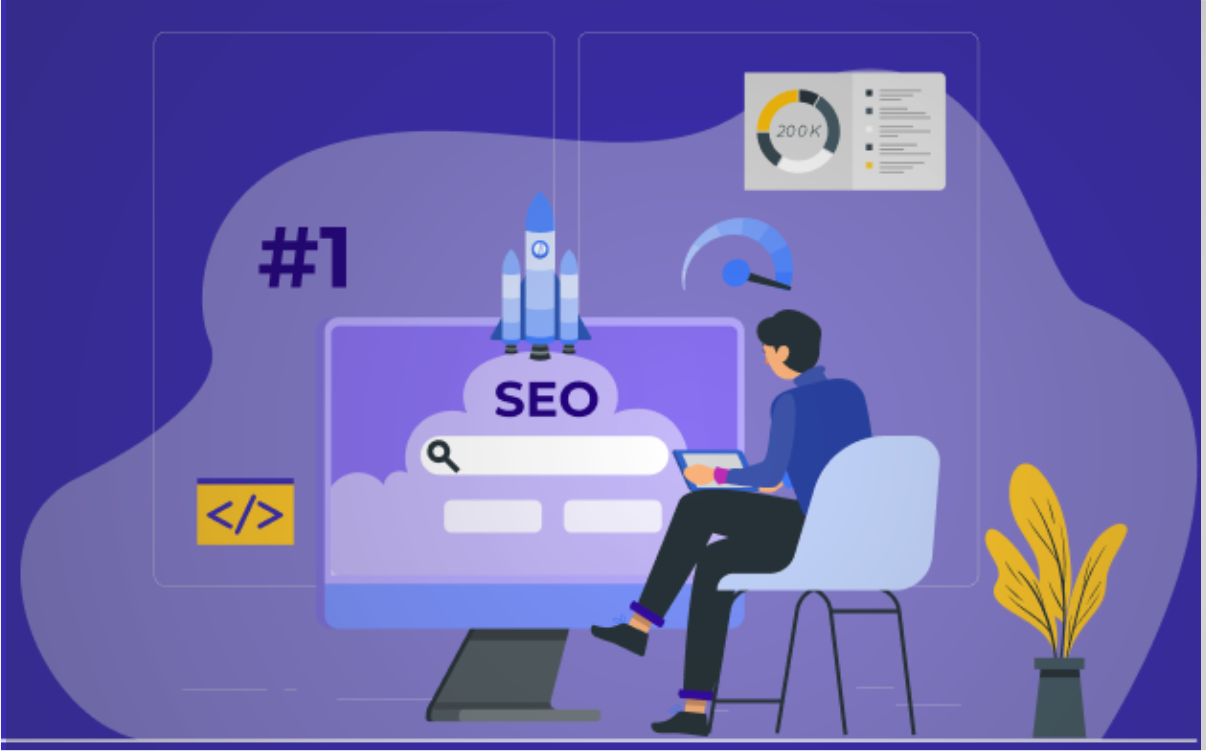Organic Search And Paid Search
It is essential for companies who are working to improve their online exposure to have a solid awareness of the differences between organic search and paid search in the exciting realm of digital marketing. Although the main objective of both tactics is to drive visitors to a website, there are considerable differences between them in terms of strategy, expense, and the results they provide. In the next section, we will get into the intricacies of organic and sponsored search, in which we will emphasize their respective benefits and problems, as well as how they complement one other in a comprehensive marketing approach.
What is Organic Search?
Organic Search refers to the process by which users find a website through unpaid search engine results. These results are determined by search engines like Google or Bing using complex algorithms to rank web pages based on their relevance to a search query. Organic search is often viewed as the backbone of a long-term online marketing strategy because it focuses on building visibility naturally over time.
The key to succeeding in organic search lies in search engine optimization (SEO). This involves optimizing a website’s content, structure, and backlinks to align with the ranking factors of search engines. By creating valuable content and following best practices, businesses can improve their organic search rankings and attract a consistent flow of visitors without spending directly on ads.
What is Paid Search?
Paid search, often referred to as search engine marketing (SEM) or pay-per-click (PPC) advertising, involves paying to appear at the top of search engine results pages (SERPs). Advertisers bid on specific keywords, and their ads are displayed when users search for those terms. Paid search provides immediate visibility, making it an attractive option for businesses looking for quick results.
Unlike organic search, paid search is transactional. Businesses pay each time a user clicks on their ad, and the cost per click (CPC) can vary widely depending on the competitiveness of the keywords. Platforms like Google Ads and Microsoft Advertising are popular tools for managing paid search campaigns, offering detailed targeting options to reach specific audiences.
Key Differences Between Organic Search and Paid Search
There are a number of characteristics that differentiate organic search from sponsored search, including the cost, the speed, the type of the results you get, and the amount of work you have to put in. By gaining an understanding of these disparities, organizations are better able to choose which method to emphasize or how to successfully negotiate between the two tactics.
Cost Implications
One of the most apparent differences is cost. Organic search does not involve direct payments for traffic, but it requires investment in SEO, which includes hiring specialists, creating quality content, and optimizing website performance. These efforts take time and resources, but once achieved, organic visibility can provide a sustainable and cost-effective traffic source.
Paid search, on the other hand, involves direct financial expenditure. Advertisers bid on keywords, and they are charged every time a user clicks on their ad. The cost of a paid search campaign can escalate quickly, especially for competitive keywords in industries like finance, technology, and healthcare. While paid search delivers immediate results, it ceases to drive traffic the moment the budget runs out.
Time to Achieve Results
Organic search is a long-term game. Achieving a high ranking on SERPs through SEO can take weeks or even months, especially for new websites or competitive industries. However, the traffic gained from organic search tends to be more consistent over time. Paid search, in contrast, delivers almost instant visibility. Ads appear as soon as a campaign is launched, making it an excellent option for businesses with time-sensitive goals or limited patience for the organic growth process.
Click-Through Rates (CTR)
Studies consistently show that users tend to trust organic results more than paid ads. This trust translates into higher click-through rates for organic search listings. Organic links are perceived as more relevant and credible since they are not directly influenced by advertising budgets. Paid search ads, although positioned prominently, may sometimes be ignored by users who scroll past them to reach the organic results.
Longevity of Results
The longevity of results is another critical distinction. Organic search benefits tend to last longer. Even after halting SEO efforts, a well-optimized website can maintain its ranking for a while, although rankings may gradually decline without continued optimization. Paid search, however, is short-lived. Once the budget is depleted or the campaign ends, the ads disappear, and the traffic stops instantly.
Targeting Capabilities
Paid search offers advanced targeting options that organic search cannot match. Advertisers can specify the audience they want to reach based on factors such as location, demographics, device type, and even the time of day. These features make paid search highly customizable and effective for reaching specific market segments. Organic search, while powerful in reaching a broad audience, does not offer the same level of precision targeting.
Analytics and Insights
Both organic and paid search provide data that businesses can use to refine their strategies. However, paid search platforms like Google Ads often offer more detailed insights, including impressions, click-through rates, conversion rates, and cost per acquisition. Organic search analytics, available through tools like Google Analytics or Google Search Console, provide valuable information on search rankings, traffic sources, and user behavior. The granularity of paid search data can help businesses make quicker and more precise adjustments to their campaigns.
Advantages of Organic Search
One of the most significant benefits of organic search is its increased longevity. It is possible for a website to gain constant visitors without having to spend money on advertising if it has established excellent rankings. Additionally, organic traffic is seen as more important due to the fact that it often comprises of visitors who are really interested in the information or product that is being supplied.
Credibility serves as an additional benefit. As a consequence of the fact that users believe organic results to be objective and based on merit, they are more likely to trust them than sponsored advertisements. The trust that users have in a company may result in increased levels of engagement and improved user experiences overall. Furthermore, organic search helps to promote brand-building initiatives by gradually enhancing the authority and reputation of a website over time.
Advantages of Paid Search
Paid search is superior in terms of both speed and accuracy. Businesses who are aiming to achieve rapid results, such as introducing a new product or advertising a time-sensitive deal, will find it to be a fantastic tool to use. To guarantee that paid search advertisements reach people who are most likely to convert, it is necessary to have the capability to target certain audiences.
One additional benefit of sponsored search is the swiftness with which iterations and tests may be carried out. It is possible to make adjustments to campaigns in real time based on performance data, which enables marketers to improve their tactics and increase their return on investment (ROI). This flexibility is particularly beneficial in markets that are highly competitive and where agility is of the utmost importance.
Challenges of Organic Search
It takes a significant amount of time and work to produce results when using organic search, which is the fundamental issue. Building backlinks, providing high-quality content, and keeping current on algorithm updates are all essential components of search engine optimization (SEO), which is a complicated and continuing process. There is a possibility that organic search may not produce results quickly enough for organizations that have limited resources or that have a need for immediate exposure.
The competition presents even another obstacle. Making a name for yourself in the organic search results may be challenging since there are millions of websites competing for attention. The visibility of conventional organic links has been diminished as a result of the introduction of featured snippets, local packs, and other search engine results page (SERP) elements, which has made it even more difficult to get momentum.
Challenges of Paid Search
The cost is the most significant obstacle that must be overcome when it comes to sponsored search. It is possible that keywords that are very competitive may be prohibitively expensive, especially for smaller firms that are subject to more stringent budget limits. In order to get a satisfactory return on investment (ROI), it is essential to meticulously monitor campaigns and to continually optimize them.
An further cause for worry is the problem of ad fatigue. There is a possibility that users will get unsatisfied with the repeated seeing of the same commercials, which may lead to a steady drop in the percentage of users that click through to the adverts. In addition, in order for sponsored search efforts to continue to be effective, they need to be regularly reviewed and changed, which may entail a large amount of resource usage.
Integrating Organic and Paid Search
Instead of having to choose between organic search and sponsored search, companies can reap the benefits of incorporating both strategies into their digital marketing plan. While sponsored search gives the flexibility to fulfill short-term objectives and respond to changing market circumstances, organic search provides a solid basis for long-term development. Organic search also provides a competitive advantage.
For instance, a company may utilize sponsored search to drive quick traffic to the introduction of a new product while simultaneously working on an SEO plan to create organic exposure over the course of several time periods. Through the identification of high-performing keywords and the comprehension of user behavior, the insights obtained from sponsored search campaigns may also be used to influence search engine optimization efforts.
Conclusion
Organic search and paid search are two sides of the same coin, each offering unique advantages and challenges. Organic search focuses on building long-term visibility and credibility through SEO, while paid search delivers immediate results and precise targeting through advertising. By understanding the differences between these approaches, businesses can make informed decisions about how to allocate their resources and achieve their marketing goals.
When everything is said and done, the most successful approach is often a blend of organic search and sponsored search. Creating a holistic digital marketing strategy that generates traffic, promotes user engagement, and optimizes return on investment (ROI) is something that firms can do by using the strengths of each particular technique.


